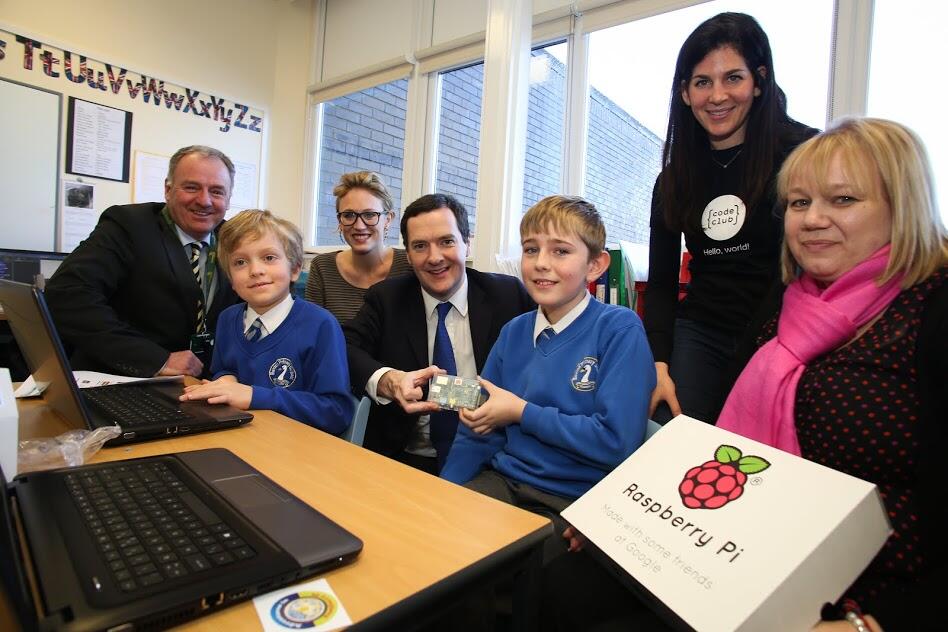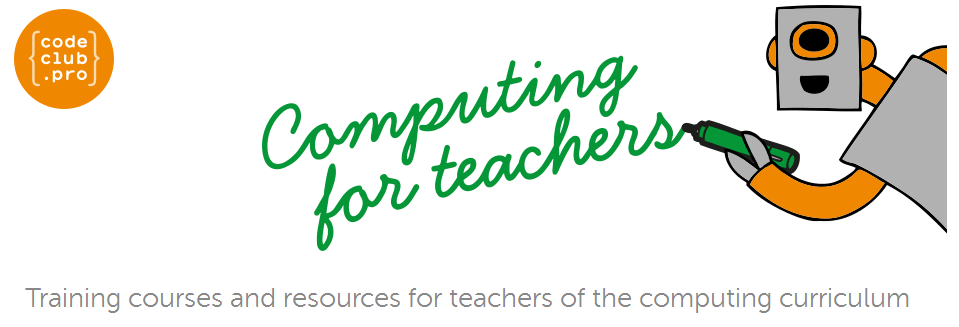| From September 2014 Computing will be a subject in its own right in UK schools. Of course at Raspberry Pi Towers we are delighted (and I mean dancing around like a drunk uncle at a wedding reception delighted) that young people will now have the opportunity to study one of the most creative, exciting and challenging subjects in the curriculum. But who will teach them? Computing is effectively a brand new subject and there are relatively few specialist teachers to deliver it. The problem is worse for primary school teachers who have to teach a range of different subjects and who typically have fewer IT resources than secondary schools. So, of course, we need to train teachers, especially primary teachers. And training works wonders—teachers arrive at my courses full of trepidation and weird rumours (you need to be a maths genius; it’s all about programming; coding gives you hairy palms). They walk out of the end of the day confident and buzzing with excitement and ideas. That’s all it takes. Of course no one will be an expert after day, but the point is that you but don’t have to be. Computing at this level is about problem solving and puzzles and creative fun—things that human beings are naturally drawn to and enjoy. And it’s definitely not about “coding”. Whatever that is. So hurrah for training! Let’s all sign up for a course at our local school! Except … there isn’t any to speak of. What there is is typically dispersed and expensive and of variable content. What teachers and schools need is widely available, low-cost, high quality, curriculum-centred training. Which is what Code Club thought too. So in true Code Club fashion they decided to just do it. We love Code Club! Anyway, I’ll let them fill the rest in. I only meant to write a sentence as an intro but as you can tell it’s something I’m passionate about. Plus, I like showboating. And if you are a school or teacher and would like to get involved, pop over to Code Club Pro’s site for more information. Code Club, the network of over 1,875 volunteer-led after-school coding clubs, with the support of Google and CAS (Computing at Schools), is launching a nationwide training programme to teach core computing skills to primary school teachers. The CPD program has been launched in response to widespread teacher demand for training in this area. According to Code Club, which has access to a wide network of schools, the training needs of teachers has so far been overlooked in this process. Its founders said: "Teachers are the key front-line implementers of the curriculum and more needs to be done to support this transition".  Code Club Pro was launched today by the Chancellor of the Exchequer, George Osborne, at a special Code Club session in Bexton School in Knutsford, Cheshire. Launching in April, Code Club Pro will enable primary school teachers to quickly understand the requirements of the new computing curriculum. The mission is to deliver training in computing to over 20,000 primary school teachers by 2016, while reaching many more through the provision of online programmes and resources. Clare Sutcliffe, Co-Founder and CEO of Code Club, said: "The addition of coding to the new primary school curriculum is a great step forward for the UK education sector. However, to date, there has been a lack of focus on how to equip the primary school teachers to actually teach this new subject. We know first hand that teachers are feeling daunted by the prospect of having to teach a syllabus they don't fully understand themselves. As a result, we decided to create a training programme that would help support them through this period of change. "As a not-for-profit, Code Club is able to focus on a core objective of supporting as many teachers and children as possible, through the provision of fun, accessible and affordable training, which hands on and experiential. Our goal is to improve access to training, so that teachers can feel confident and excited about delivering the new computing curriculum." |
A Semi-automated Technology Roundup Provided by Linebaugh Public Library IT Staff | techblog.linebaugh.org
Friday, February 7, 2014
Code Club Pro: a training programme to support primary school teachers
Subscribe to:
Post Comments (Atom)

No comments:
Post a Comment